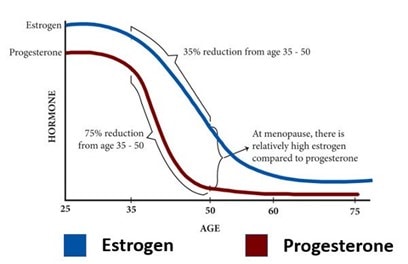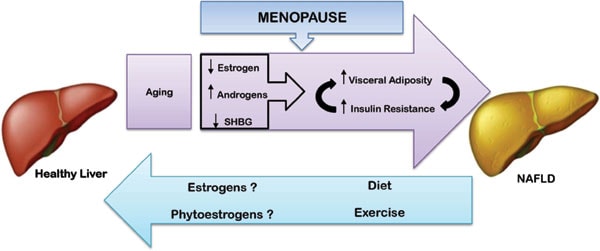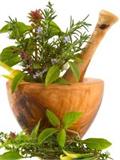Relief for menopause with herbs and supplements
Make Menopause a Cool Transition
Firstly – grab a drink and settle somewhere quiet to get acquainted with our take on Menopause – its a big and important topic with out a quick fix
Most women in their 50”s tend to lead rich and hectic lives and need healthy herbs and supplements to find relief before, during and after the often its often challenging symptoms of menopause.
Many women manage a home, children and help out grandparents. They also want to enjoy their partner, work and have a social life. Any wonder women can feel stressed, hot and bothered.
Menopause is a natural process where a woman transitions from her childbearing years to the next stage of her life. A woman is said to be officially in menopause once she has not had a menstrual period for twelve consecutive months. For many women, the months or years leading into menopause (known as perimenopause), can mark the onset of challenging symptoms including irregular menstrual cycles, flushing sensations, irritability and night sweats.

A woman’s periods will continue until 45-55 years. Towards the end of a woman’s reproductive life, anytime from 35 years, periods can become irregular because there are not enough eggs left to produce an “ovulatory” cycle every month. This period of time is referred to as the peri-menopausal phase.
After 12 months without periods a woman is in menopause. Even then symptoms can persist for many years for some women. Hot flushes result from the drop in oestrogen and are associated with our reaction to stress and our Metabolism:
- Metabolism refers to the countless chemical processes going on continuously inside the body.
- The amount of kilojoules your body burns at any given time is affected by your metabolism.
- Your metabolic rate is influenced by many factors – including age, gender, muscle-to-fat ratio, amount of physical activity and hormone function.The early onset of menopause can be influenced by:
- Body weight, under or overweight.
- Medical drugs and surgical interventions that create a dramatic stress on the body with or without the removal of ovaries.
- Prolonged or acute stress itself can bring on menopause.
Our female hormonal system is controlled by the interaction of various endocrine glands and organs within our body and a principal regulator is the gut microbiome, found in our digestive system.
- The hypothalamus and the pituitary gland that sits just below the hypothalamus reside in the central area of our brain.
- The ovaries which are part of the pelvic reproductive tract.
- The adrenal and thyroid glands play significant roles in ensuring a smooth transition once hormone levels change.
- The liver is tucked away under your ribs on the right side of your abdomen. Among the amazing processes within the liver, is the breakdown of hormones when they have served their purpose. These degraded hormones are excreted via the kidneys.

The Reproductive hormones
Like all the hormones in our body, reproductive hormones are manufactured from cholesterol and are called steroid hormones. These hormones are recycled, degraded, and excreted.
The main reproductive hormones involved are:
Oestrogen
- Oestrogen influences the menstrual cycle from puberty to menopause.
- At menopause when periods cease, a weaker form of oestrogen called oestrone is produced by the adrenal glands. Oestrogen also be converted from androgen in our fat, muscle, and skin.
- Oestrogen is excreted via the liver, so it is important that your liver function is in good health. Lifestyle, dietary and herbal medicine can restore optimal function. See below.
- A lack of oestrogen after menopause affects muscle mass and strength, bone density, cardiovascular health general feeling of wellbeing.
Progesterone
- Progesterone prepares our bodies for pregnancy.
- Inhibits androgens and opposes oestrogen.
- Progesterone decreases in the peri-menopause phase and eventually ceases in menopause causing androgen levels to increase.
- Common symptoms associated with low progesterone include brain fog, mood changes, facial hair, increase in fat deposits around the abdomen
- Excretion is via the liver.
Androgens
- Androgens (including testosterone) are usually thought of as male hormones, but the female body naturally produces a small amount of androgens too. The ovaries, adrenal glands, fat cells and skin cells make the female body’s supply of androgens and produce levels useful for life after menopause.
- Convert into testosterone then to oestrogen.
- Like all hormones and process within the body the androgen levels gradually decline with age. The adrenal glands take over . For some women this may result in loss of hair on the head and growth of facial hair. Other symptoms include a loss of libido, fatigue & lack of well-being
Education is the most important tool for managing this huge change.
The second most important part is a will to want to maintain good health by reducing stress on the body and mind by:
- eating well
- ensuring a quality sleep
- enjoying moderate amount of exercise to maintain cardio fitness and muscular strength
- drinking little alcohol, as it affects healthy function of the digestion and liver
Most women are aware that the decline in their hormones results in the changes to their bodies. For some women, this dramatic change passes with ease. Not so for around 70-80% of women.
When the time comes, the hot flushes, insomnia, night sweats, weight gain, mood changes, joint pain, and headaches may come as a surprise. As time passes vaginal secretions reduce along with the strength of our soft tissues, muscles and ligaments and skin. Sounds like ageing doesn’t it!
This may result in difficulties with intercourse, fragile vaginal tissue and UTI’s. So being willing to make lifestyle adjustments and have some honest conversations with our partners may make an enormous difference to your experience and future wellbeing. Talk to us about how we can help “down there”.
By ensuring the healthy function of our glands and organs we can greatly reduce symptoms and risks that are associated with menopause and ageing.
Adrenal Health
- Once ovulation ceases oestrone is supplied by the adrenal glands.
- The adrenal glands sit on top of our kidneys and are the stress monitors of the body. Unmanaged stress affects adrenal and thyroid function thereby affecting the reproductive hormones. Hot flushes can be increased when stressed, over-worked or sleep deprived.
Thyroid Health
- Healthy thyroid function plays a significant role in our metabolism, weight and the general function of our body. This includes our energy, mood, and hormonal balance. Subclinical hypothyroidism (SCH) is a condition of elevated serum thyroid stimulating hormone (TSH) with normal serum free thyroxine (fT4).[2] Studies have indicated a high prevalence rate of SCH in the United States, ranging from 3% to 18% in the adult population, with higher rates among women and the elderly. In New Zealand we could imagine these rates to be similar.
By taking your basal body temp each morning you can monitor your thyroid health regularly. This is particularly useful if your blood tests have come back normal yet your physical signs of, dryness, fatigue, coldness, weight gain and low mood suggest otherwise. Come and talk to us about how to do this.

Look after your liver especially if you have a fatty liver!
Liver and Kidney Health
The liver is responsible for hundreds of processes in our body. Filtering the body of metabolic wastes as well as external toxins .
This truly is detoxification and is a normal process. The liver can suffer free radical damage, which requires high amounts of antioxidants to reverse the damage on a daily basis.
Bitter herbs such as Milk Thistle, Dandelion and Turmeric can help to rejuvenate liver. Years of chemicals from processed fatty foods, alcohol, medications, and exposure to pollution in our cities and environment takes its toll. As the liver starts to return to normal we will all feel more energetic and be healthier.
- The healthy function of the liver is important for the breakdown and clearance of hormones. Given its involvement in several gynaecological conditions such as fibroids, uterine and breast cancers this is very important to remember.
- Women, particulary around and after menopause may be more prone to Non Alcoholic Fatty Liver Disease. (see above ) A fatty liver can be a major problem associated with many health problems.
- Apart from detoxification, the liver stores fat-soluble vitamins (A, E, D & K), and sugar in the form of glycogen. It also plays a role in heat and energy production from breakdown of carbs, fats, and protein.
- Our Kidneys are a part of the detoxification of the body systems and influence water retention and our general health.
Herbs have been used around the world for hundreds of years and there is plenty of research on herbal medicine
Herbs that help our hormonal balance leading up to and beyond menopause
Vitex (berries) provide a unique approach to helping to balance pituitary hormone levels and cyclic hormone fluctuations. It may help moderate prolactin levels and mood disturbances. Clinical studies have shown that Vitex reduces symptoms associated with PMS and PMDD (a severe form of PMS), and during the Perimenopause.
The Perimenopausal symptoms include:
breast tenderness, irregular and often heavy bleeding, fluid retention, menopausal flushes, and night sweats.
When combined with some of the herbs below the outcome can greatly improve the well-being of women from teenage years to menopause. There are other herbs to consider – so talk to us to find which ones are the best for you.

Herbs for the Digestive system and Metabolic Syndrome
The liver’s health plays a very important role in hormone balance. Bitter herbs may reduce inflammation and aide digestion by promoting gastric, liver and pancreas function. The liver is an important organ in relationship to Metabolic Syndrome, which may be a pre-cursor to diabetes.
Here are a few of the best herbs for healthy liver function:
Milk Thistle, contains high levels of the liver antioxidant, silymarin. The results from this random double blind study showed that S. marianum can decrease frequency and severity of hot flushes significantly over a 4 – 12 week period. This is great news for women, because not only do the flushes and sweats decrease, liver function improves and that is beneficial for long term health.
Dandelion root may aid the breakdown and excretion of hormones along with the production of bile that enhances our digestion. Fenugreek also contributes to problems associated with reducing weight gain.
Herbs that help us adapt to stress – we call them Nervines and Adaptogens
Nervine herbs calm the nervous system and can contribute to a greater sense of wellbeing. Our reaction to stress can increase the frequency and intensity of hot flushes. Nervines may help moderate night sweats, mood and insomnia. There are many herbs to use for stress and to improve mood. Here are some of them:
Mood Enhancement – some of the herbs we love:
For anxiety and depression we use Magnolia officinalis, St John’s Wort & Black Cohosh Insomnia – nervine herbs such as Valerian, Californian poppy, Lavender, Hops, Motherwort, Bupleurum, Scutellaria (skullcap)and Ziziphus and many others can relax the nervous system and have an effect on anxiety. Cortisol Levels – A little Holy Basil is wonderful addition to a menopausal tonic to reduce high cortisol levels that result from our reaction to stress.
Endocrine (hormonal) system – the big link to your female hormones
Adaptogenic herbs assist with our response to stress: Physical, environmental, emotional, or environmental stressors can deplete our energy and drag us down. E.g. Withania, Siberian Ginseng, Rhodiola and Schisandra.
Thyroid Health and Menopausal Palpitations
Women may experience hyper or hypo thyroid symptoms from their 30’s onwards. While a test may come back saying you are within the normal range, our naturopath will check out other symptoms that may suggest there is a problem.
Herbs such as Kelp (lots of Iodine) and Rehmania play an important role in hormonal balance in the thyroid.
For women and men with hyper-thyroidism we are very pleased to say we have a group of herbs that can be used. Bugleweed may help manage symptoms and goes well with Motherwort to calm palpitations and anxiety. Professional guidance from your doctor and herbalist are absolutely necessary because of the risks of cardiac problems.
Joint aches and pains
We consider many symptoms including muscle and joint pain. This can be very painful and contribute significantly to insomnia and stress. Just as importantly, the loss of oestrogen can lead to a loss of muscle mass and further reduce strength and mobility. Read on to the end of this article about the amazing benefits of exercise. There are so many options herbal options to reduce pain and inflammation. Once again, we look at each person and their individual patterns of symptoms.
Herbs to manage heavy bleeding and uterine fibroids.
Women may leave it way too long before they seek help for heavy bleeding during periods. Diagnosis with a scan is key to managing menorrhagia (heavy bleeding) and assessing uterine fibroids. This is essential to rule out potential carcinogenic changes to fibroids. Your doctor is your best advocate here to monitor what can be an alarming and debilitating experience for women. Get tested earlier rather than later!
Talking with a herbalist earlier rather than later, usually helps restore some balance to a women’s periods. Acute blood loss can lead to low iron levels, that results in bleeding even more heavily. Heavy menstruation can be moderated with herbs for heavy bleeding along with supplementation with DIM and bioflavonoids. Ginger, Shepherd’s Purse, Lady’s Mantle and Yarrow are historically uesful herbs.
Many women find that a menstrual cup is useful to catch more blood than tampons can absorb. Silicone cups are less irritating to the lining of the vagina and ultimately are an economical solution. Come in and we can help you find the right one for you.
We advise women from teenage years to menopause to start herbal tonics as soon as there are irregularites in their cycle
We suggest women
Get tested for iron deficiency anaemia. While supplementing with gentle iron formulas is important reducing the amount of blood loss is the primary treatment. Vitamin C and Zinc is also important for the integrity of tissue in your uterus and vagina.
We strongly advocate that you understand the need to reduce oestrogen dominance through improved liver function using herbal medicine and increasing helpful phyto-oestrogenic foods, see below.
Loss of libido and Vaginal Dryness
Intimacy becomes quite a problem during the change of life. Using a Phyto-oestrogen cream can keep the delicate vulva and vaginal tissue remain healthy. Lubrication with a natural gel may be the difference between Yes or No to you partner. An open discussion is very important so that your are never compromising yourself when it comes to sex.
Just because one company is marketing their product, it does not mean that it will be useful to all women.
The combined effect of a variety of herbs and specific supplements can make all the difference at menopause
Nutritional support
Essential fatty acids – These fats must be consumed and are not manufactured in the body. As a result, consuming healthy nuts, seeds and oils is really important for good health.
- The most important fats for maintaining healthy hormonal balance are Omega-3 and gamma linolenic acid (GLA). Omega-3 essential fatty acids, EPA/DHA, support healthy production of hormones and anti-inflammatory processes in the body.
- Sources of Omega-3 – are found in dark oily fish such as mackerel, salmon, tuna, sardines, anchovies. Always buy fish oil that is guaranteed to be tested for pesticides, heavy metals, and rancidity.
Few companies test for rancidity so beware of those cheap oils. Where possible purchase in pre-packaged amounts with a long best buy date. Any nuts, seeds and oil should taste light and leave a pleasant taste in your mouth. Store in airtight containers in your fridge.
- Omega 3 from plants include flax seed, hemp seed and walnuts. Always by fresh nuts, if they are rancid, they will be inflammatory! The recommended daily intake is 1000-3000mg.
- Evening Primrose and Pomegranate oil – is a source of GLA which has been shown to be useful in reducing PMS symptoms particularly tender swollen breasts.
- Vitamin B complex including Vit B6 100mg – helps to reduce nervousness, lack of concentration, fluid retention associated with tender swollen breasts and bloating. Boost energy levels.
- Magnesium – is helpful in reducing spasmodic dysmenorrhea or painful periods. Magnesium also calms and relaxes the nervous system reducing stress and tension. It is useful for insomnia particularly where there is difficulty in getting back to sleep after waking. Magnesium also regulates blood sugar levels, helpful for preventing sugar cravings. Magnesium Citrate is a well absorbed form.
- Calcium is the most abundant mineral in the body. 99% is incorporated into our bones and teeth. Rapidly declining oestrogen levels after menopause may reduce bone density and may be remedied by increased calcium and mineral intake and Vitamin K2. Combined with magnesium, your body will feel more relaxed and every function in the body will work better.
- Vitamin D is important in calcium regulation and may be helpful for vaginal atrophy, enhancing mood, weight management and the prevention of chronic disease. Dosage; 1000-5000 IU daily. If you do not see much daylight – take a supplement.
Dietary and lifestyle suggestions for women young and old
Another key to great well being and hormonal balance is how we eat and what to avoid in the way of the unhealthy foods and lifestyle habits. View this article
Lastly – a quick reminder to reduce stress and find time for you
- Plan ahead for the immediate and longer term.
- Discard habits that you know do not serve you. A counsellor or hypnotherapist can be of use here.
- Delegate jobs at home. Get your family on board to share the responsibilities at home.
- Sort out relationship issues. The stress may aggravate all your symptoms.
- Avoid procrastination, it’s a stress creator. Check out this link about making decisions
- Find some quiet time if you are the sort who cannot rest until everything is done.
- Prioritise time each day for recreation and relaxation such as meditation, deep breathing, tai chi, yoga, gardening, hobbies, family & friends.
Prioritise 15 minutes each day for yourself to reap the benefts
You might also like to read
Vitamin D for mothers and babies and everyone else
Taurine – the established benefits for energy, repair and mood
Remedies for swollen Adenoids, enlarged Tonsils and Glue Ear
